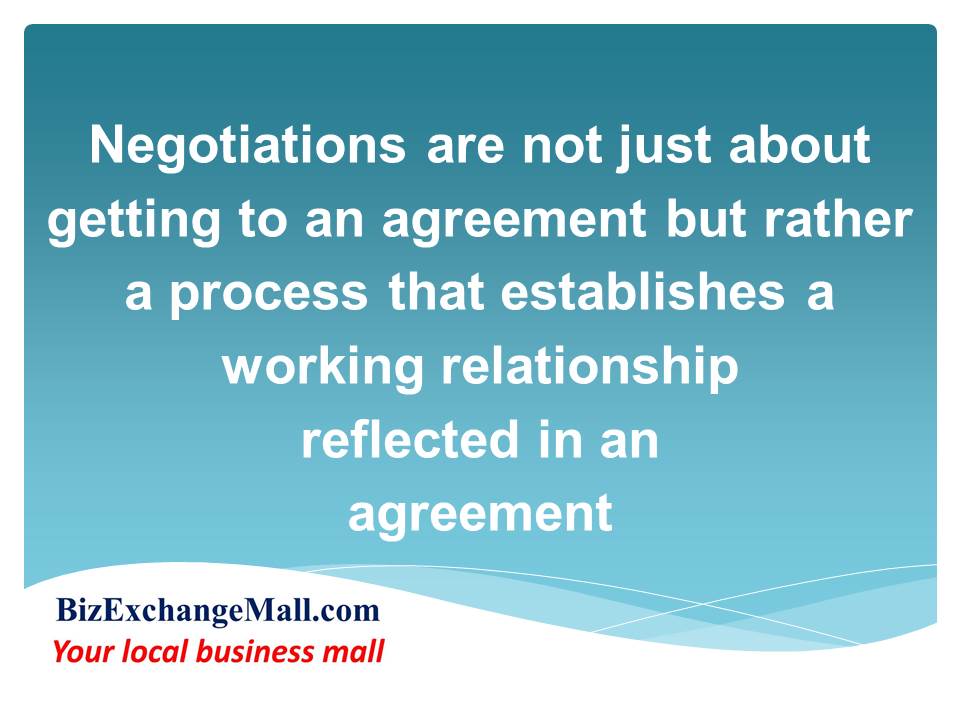Establishing long term relationships
This Article originally appeared on TradeReady.ca
The purchasing agent of a North American store chain (the importer) based in Hong Kong successfully negotiated an import-export agreement with the sales representative of a South East Asian manufacturer (the exporter).
The two individuals believed they had communicated clearly the expectations of their respective companies. The exporter’s sales representative informed management that the importers were looking for a pricing that would enable them to give huge discounts during the Christmas sales period.
For two years the relationship worked well with prompt delivery and payments between the parties. On the third year disputes arose as to alleged product defects found in a shipment of two containers of products.
The manager with the exporter insisted through an email that payment had to be made under the terms stated in the agreement as they had delivered acceptable quality for the price charged. If there were any defects they would be repaired at the exporter’s expense.
The purchasing officer with the importer through an email stated that the importer refused to accept delivery of the two containers of products which he insisted the exporter take back.
A series of emails over a couple of months were exchanged between these two individuals that showed a hardening of positions with a threat of litigation made. At that point the correspondence stopped between the parties and the dispute remained in limbo for several months. Then a consultant was called in to suggest a way forward to resolve the dispute.
The consultant examined the documents and email correspondences. He noted the differences in expectations and perspectives of the exporter’s manager and the importer’s purchasing officer.
The consultant guided the two parties away from the emotions of the two individuals who had exchanged emails towards an objective assessment of the facts based on reasonable expectations under the import-export agreement.
The consultant did this by restarting communications between the parties by encouraging the exporter’s Chief Executive Officer (CEO) to communicate directly with the importer’s Purchasing Manager. A settlement proposal which had been emailed at the early stage of the dispute was used as the basis for settling the dispute. This removed the negative human emotions from the negotiations.
The CEO and Purchasing Manager reached a settlement whereby the importer at its’ own expense shipped backed the two containers of products to the exporter. This ended the monthly warehousing expenses incurred by the importer.
Upon receiving the two containers the exporter found that except for a few items of defective products in one container which were repaired, they were able to resell the two containers of products through an agent of an importer in Europe.
The parties should have established transparent communication channels to address issues and resolve disputes in a timely manner when initially negotiating the import-export agreement in Hong Kong. This could have sustained the business relationship.
The lessons from this case for international business negotiations include the following:
1. Transparent Communication Channels
Negotiations are not just about getting to an agreement but rather a process that establishes a working relationship reflected in an agreement.
Establish communication channels for conducting the relationship in a way that enables individuals working for both importer and exporter to find amicable solutions to disputes that arise.
2. Dispute Resolution Mechanism
Designate an independent negotiator or mediator that the parties can turn to for trusted guidance on how best to move forward once a relationship becomes strained.
The emphasis should be on avoiding litigation by either helping to re-establish sufficient trust to re-build a working business relationship or arriving at a dispute resolution with an amicable settlement.
3. Focus on Business Relations
Focus on the business relations and not on the personalities involved in the relationship. Business interest dictates acting on facts and not mere opinions.
It is important to monitor communications. A well-managed dispute resolution mechanism should guide parties away from the personal interest and ego of individuals.
Open communication channels should be monitored by senior managers who can intervene early enough to prevent toxic relationships from developing between individuals in direct communication at the operational level.
4. A Positive Exit Strategy
Not all business relationships can be salvaged. In such an event there should be mechanisms built into the agreement on how to calculate and allocate cost; as well as on how both parties can terminate the agreement and exit the relationship in an expedient manner.
In our case of the North American importer and South East Asian exporter there was a lack of the above mechanisms for dispute resolution, amicable settlement and exit that could have saved them time and money.
Both the importer and exporter have moved on to doing business with other parties. Hopefully their experience becomes a lesson on the importance of negotiating international business agreements that establish relationships based on performance, quality standards, open communication and mechanisms for dispute resolution.
Siddha Param
International Business Consultant
Reboot your business plan for sustained high growth
Click For Link To:
BUSINESS SERVICES
CENTRE FOR EXCELLENCE
BUSINESS EXCHANGE MALL CONNECTIONS
Do share this article on social media and with those interested

 RSS Feed
RSS Feed
